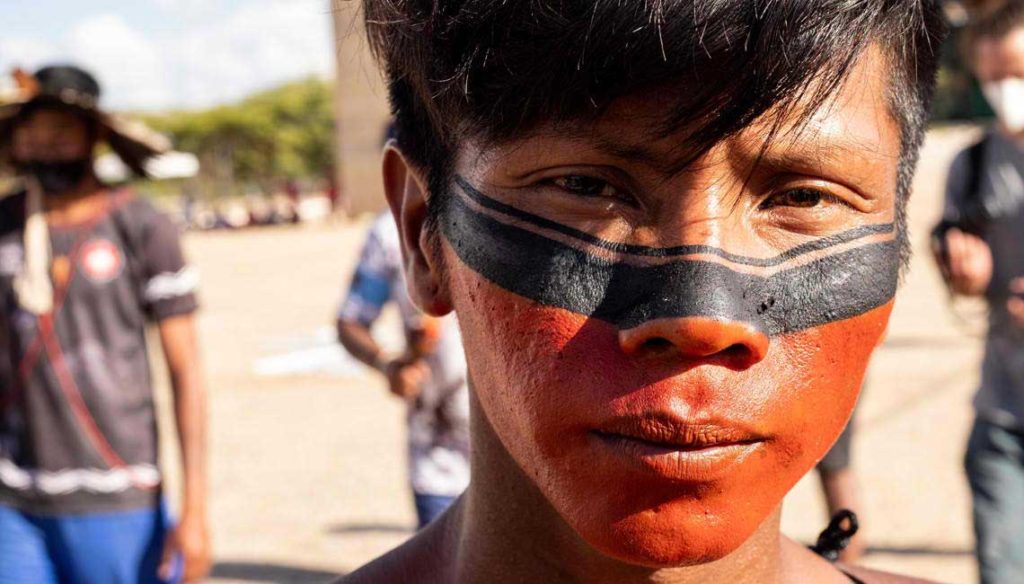
Before the wig and the jacket
Pablo Neruda (1949) General Song.
were the rivers, arterial rivers:
were the mountain ranges, in whose threadbare wave
the condor or the snow seemed motionless:
It was the humidity and the thickness, the thunder
still nameless, the planetary pampas…
On October 12, 1492, Christopher Columbus believed he had reached the so-called Indies of Asia. The following explorers of the New World understood that the Italians had made landfall on an unknown continent, full of human and natural resources that would be favourable for the European economy. It was around the 16th century when the missionary Bartolomé de las Casas denounced the enslavement of the Indians, advocated for the rights of the natives and reported to the king of Spain how the original culture was destroyed.
As in other countries of the continent, Columbus Day is also commemorated in the United States, on the second Monday of October of each year. This celebration gained visibility in 1892 when it was proclaimed a national holiday in a diplomatic effort to smooth things over with Italy, after a fatal incident for the Italian-American community of New Orleans. Today the ways to celebrate this date are very varied, depending on the state or city where you are.
Associations such as the American Indian Movement do not recognize diverse cultural integration and focus their efforts on making injustices against native populations in the United States visible. The same has been considered in various countries of the Americas, and resignification movements have been consolidated that criticize this festivity because it commemorates the subjugation and elimination of pre-Hispanic societies.
At the beginning of the 20th century, October 12 was designated as the Day of the Race, in Mexico and other countries, to commemorate the creation of the Ibero-American race, miscegenation and cultural syncretism, however, its celebrations were always full of protests social and strong questioning. In the summer of 1990, for example, 350 leaders of indigenous groups showed up in Quito, Ecuador, to carry out the First Intercontinental Meeting of Indigenous Peoples of the Americas and to mobilize against the celebration of 500 years of the Day of the Race scheduled for 1992.
The following year, in California, hundreds of Native Americans gathered to continue the Quito conference and, on October 12, 1992, the International Day of Solidarity with Indigenous Peoples was declared. Among the issues addressed was the elimination of the term race to define the human condition, a request based on scientific studies dating from the middle of the last century.
The word race, used to distinguish the physical characteristics of the human species such as skin or hair color, was popular in the 19th century to describe humanity in biological terms and thereby justify the hierarchy of certain human groups over others. . However, in the mid-twentieth century, the term was questioned and it was claimed that there is only one human race with differences. The term ethnic group has been accepted, to make visible the various cultures and languages. Today it is appropriate to speak of phenotype, to distinguish people not only by their physical traits but also by genetic, behavioural, cultural and environmental. Therefore, science affirms that the human race does not exist.
The governments of the countries of Latin America have supported the call of the organizations of indigenous peoples. Guatemala prefers to call October 12 the Day of Indigenous Resistance, since they consider that from the Spanish conquest to the present they have been subjected and discriminated against. The peoples of Mayan origin demand their recognition by the State because they have lagged behind in economic development. The Guatemalan claim has had an echo in other countries.
In Mexico, since 2020, it has been called Pluricultural Nation Day. In Nicaragua it is called the Day of Resistance, Indigenous, Black and Popular, in Argentina, the Day of Respect for Cultural Diversity, in Colombia, the Day of Race and Hispanic Heritage, and in the Dominican Republic, the Day of Respect for Cultural Diversity.
With these celebration proposals, the aim is to delve into the culture that has resulted from that meeting, to recognize the abuses committed and to avoid repeating the history of discrimination and racism. In the city of Houston, a goodwill event is held that promotes the recognition of Hispanic heritage and through the Hola Houston page, you can learn more about the program of cultural activities called Mes de la Hispanidad.
At Del Pueblo Funeral Home we join the recognition of the original peoples, as well as the various migrant societies that today make up the wealth of our society, and that no element is more important than another. We know that social harmony contributes to the peace so longed for in our days, so we remind you that we make the most difficult moments easy.
